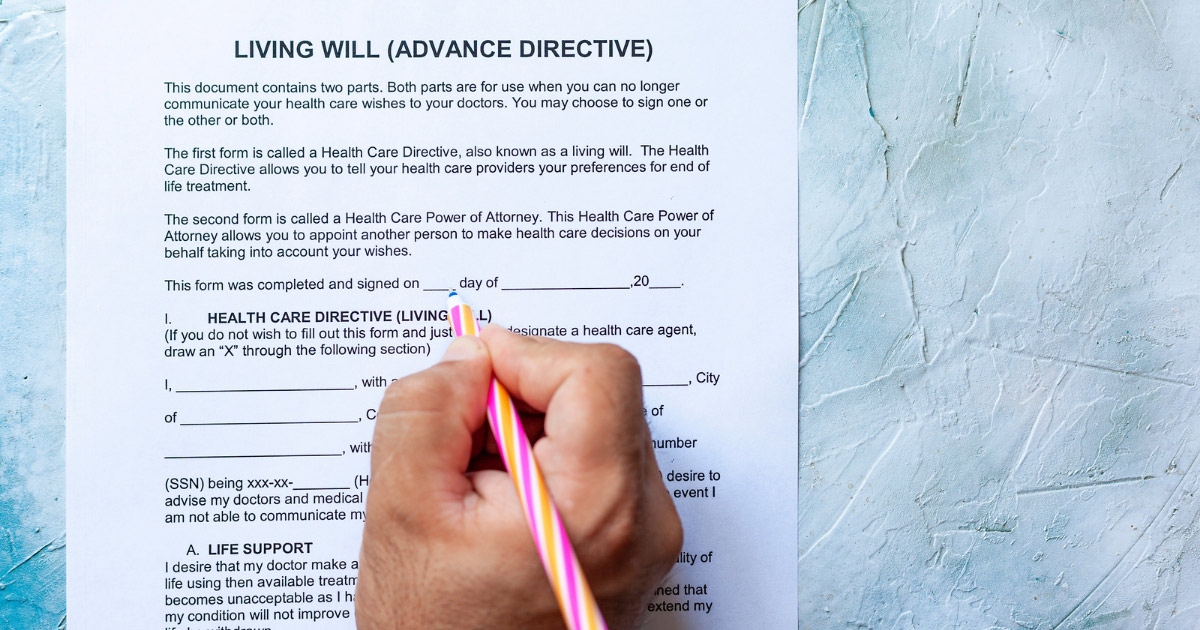Advance directives are documents that a person makes to advise health care providers and family members what medical treatment should be given if the person becomes unable to make their own decisions. These types of documents are very important when a person suffers from an illness or injury and cannot communicate with their caretakers. These issues often arise during the end of a person’s life when doctors have declared that the individual is in a terminal state but cannot communicate.
There are many types of documents that are considered advance directives. Some of the documents are designed for when the person merely cannot communicate with the outside world due to a medical issue, but they are not in a terminal state. However, some documents are meant to deal with issues that solely arise when the person is in a terminal state and also cannot communicate their wishes.
There are two main types of advance directives: living wills and durable powers of attorney.
Living Wills
A living will is a document that is signed and witnessed that directs others how to handle your medical care, it is common type of advance directive. An advance health care directive is a document in which a person states whether they would like extraordinary means used to prolong life.
In some states, it may also contain information about the desire not to receive food and water by way of tubes when in an irreversible coma if death is imminent. The living will usually does not take effect until the patient is terminally ill.
Durable Powers of Attorney
A durable power of attorney is a document appointing someone else to make health care decisions for the patient if they become unable to decide on their treatment. This allows the agent to pick up medical records, talk with doctors about the patient’s condition, and authorize disclosure of information to family members.
Some states require that both spouses sign this form. A durable power of attorney is useful during situations where the patient is not in a terminal state or can even communicate but is incapacitated due to being the hospital, for example.
DNR Orders
A DNR order is a document that tells medical personnel not to perform cardiopulmonary resuscitation (CPR) if the person suffers cardiac or respiratory arrest. A DNR order can be used as part of an advance directive. A DNR order is necessary only if the person has a terminal illness and does not want extraordinary means used to prolong life.
There are specific legal procedures for signing these orders in some states; this varies by state law. The advance directive alone is insufficient proof of a DNR order in most places. Instead, it must be made part of your medical records.
Media Wills and Estates Lawyers at Eckell Sparks Have Been Helping Clients With Advance Directives and Estate Issues for Decades
The beginning of the new year is a good time to make sure all of your important life decisions and paperwork are in order. Our Media wills and estates lawyers at Eckell, Sparks, Levy, Auerbach, Monte, Sloane, Matthews & Auslander, P.C. have been helping families and individuals with drafting advance directives, wills, and trusts for decades. Call us at 610-565-3701 or fill out our online form for an initial consultation. Located in Media and West Chester, Pennsylvania, we serve clients throughout Delaware County, Chester County, and Montgomery County.

